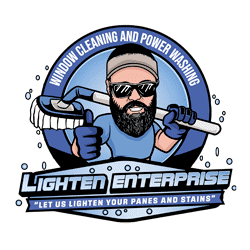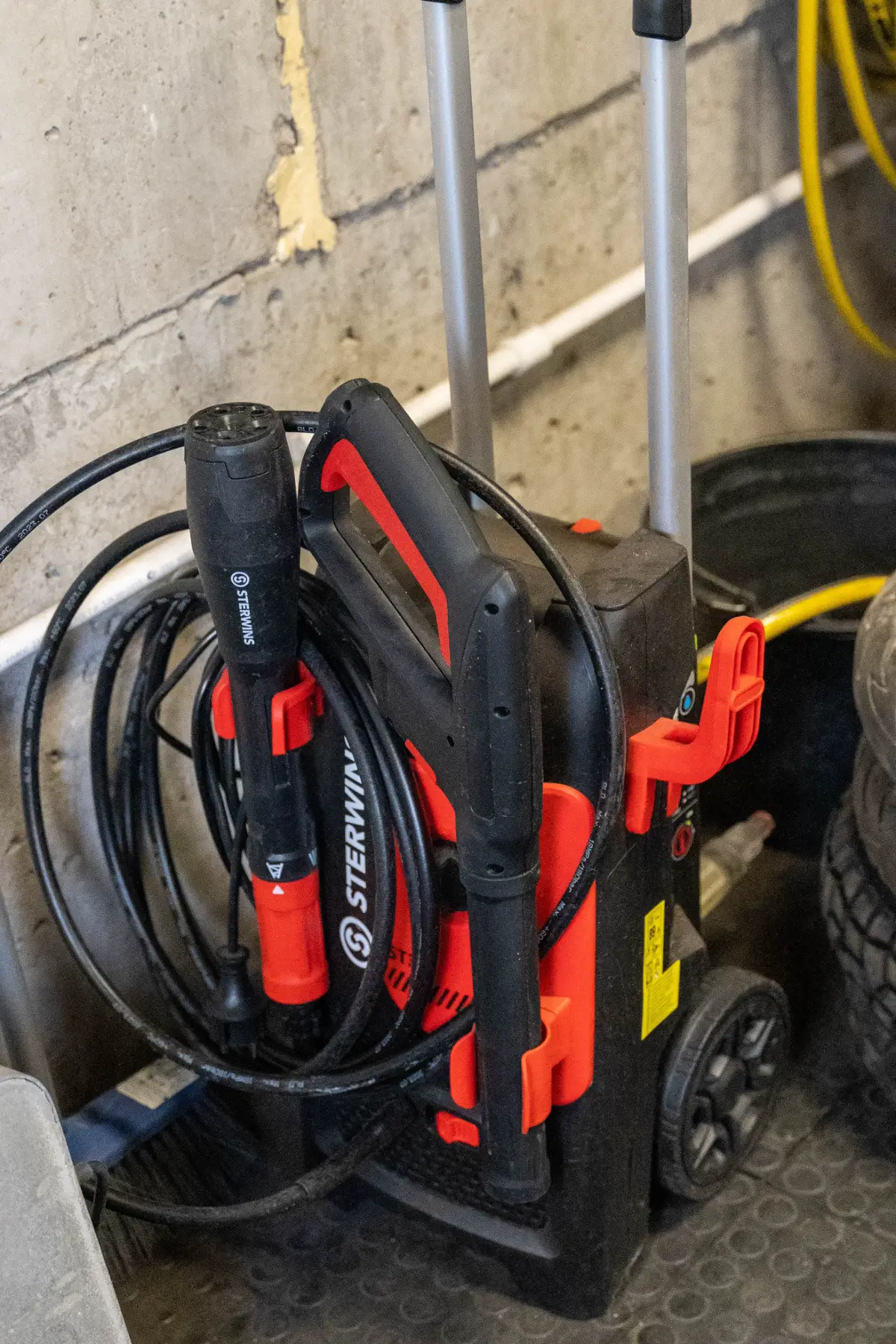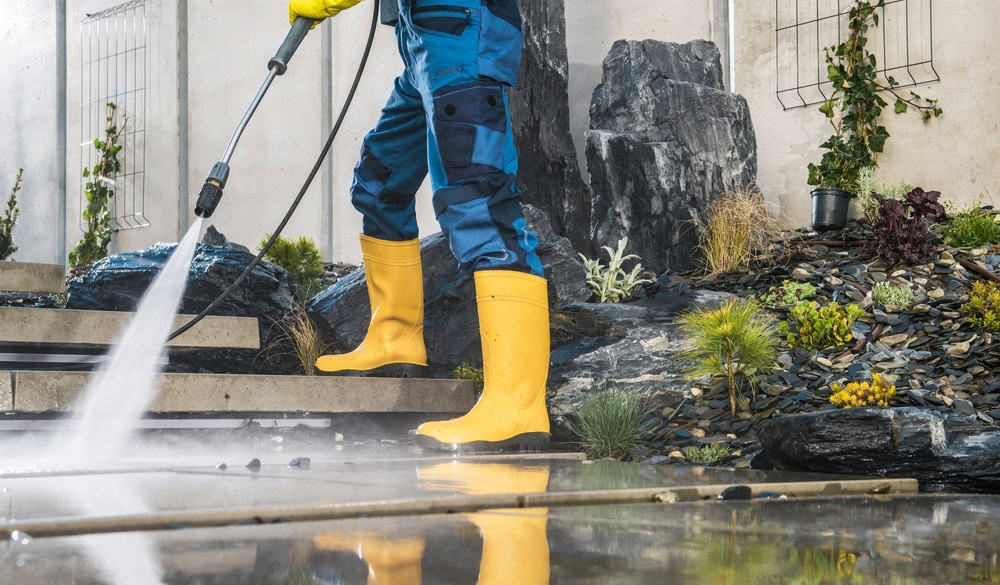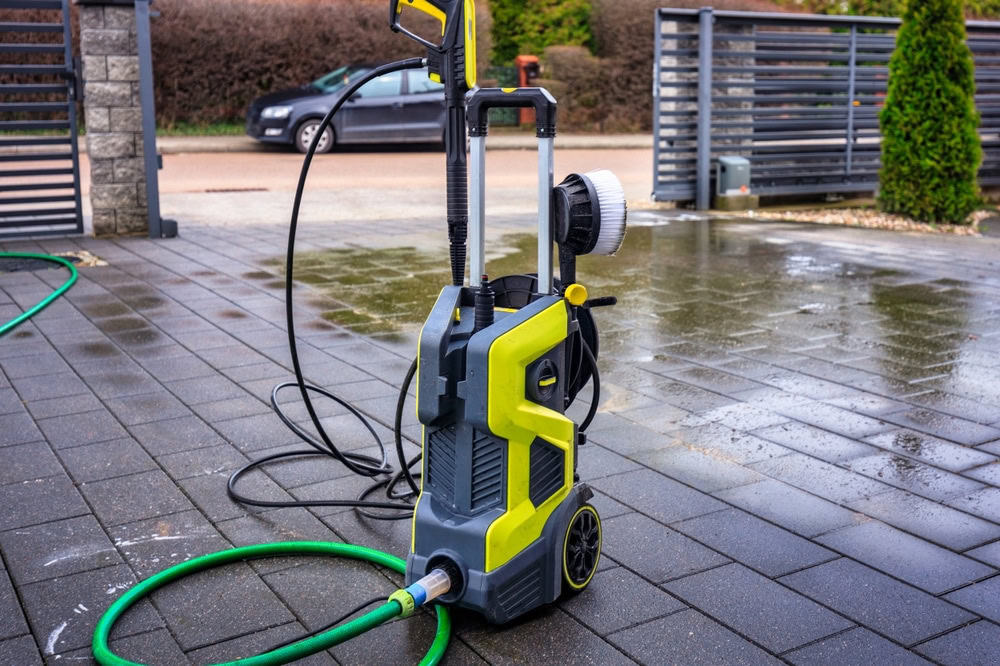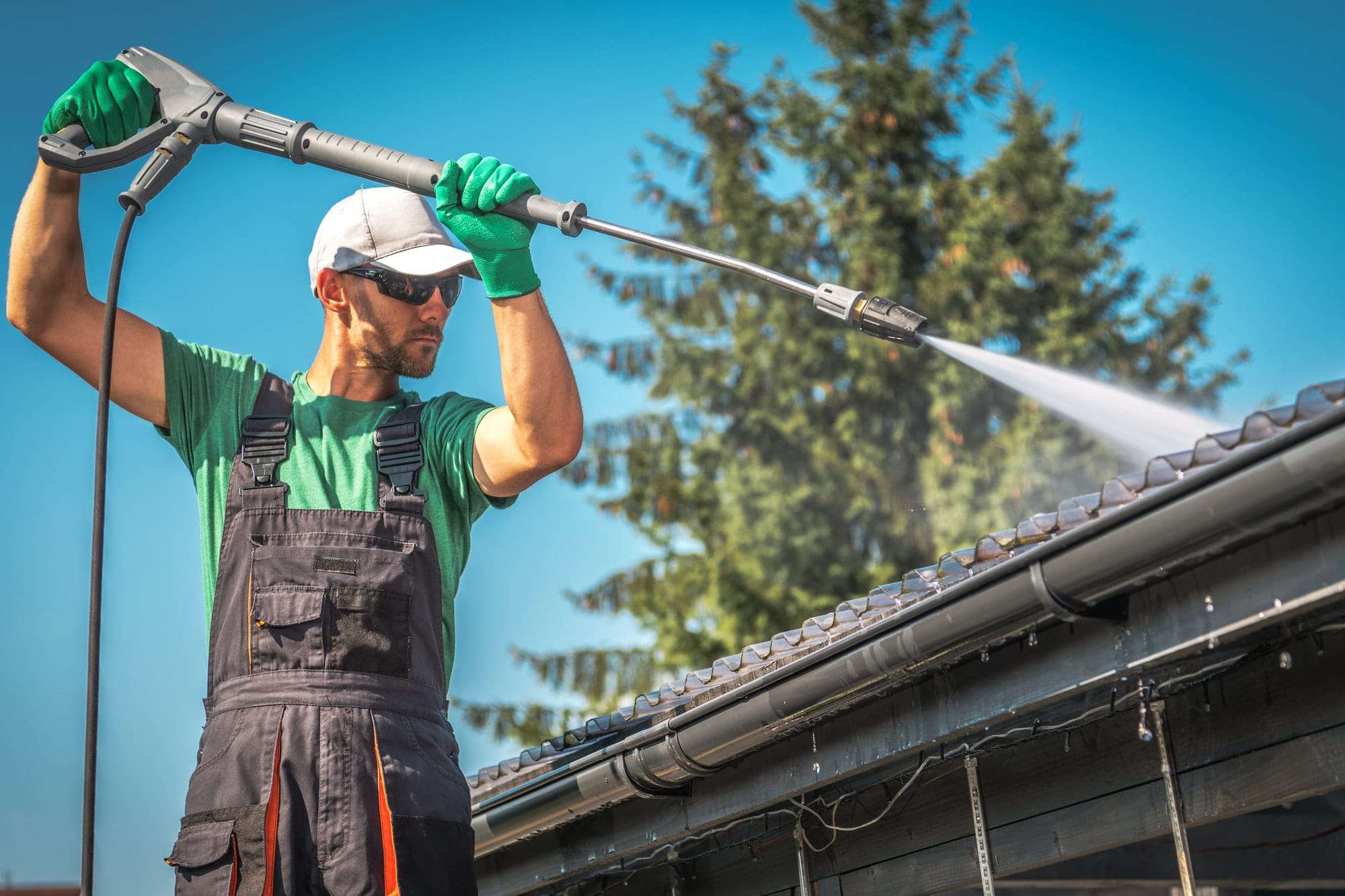Summary:
Matching Washing Methods to Your Home's Surfaces
Applying the wrong water pressure to a surface can cause significant damage. For instance, using high-pressure water, often above 1,500 PSI (pounds per square inch), on vinyl siding can force water up and behind the panels. This trapped moisture creates a hidden breeding ground for mold and can cause rot in your home’s sheathing. Therefore, a distinction is made between high-pressure washing and soft washing. Soft washing is a technique that uses low pressure, comparable to a garden hose, combined with specialized cleaning solutions. These solutions do the work of breaking down organic growth, which is then gently rinsed away. This method is ideal for more delicate surfaces like siding, painted wood, and roofing, preventing the kind of damage that high-pressure jets can inflict.
Safely Cleaning Your Siding and Roof
Your home’s siding and roof require a gentle approach to avoid costly damage. For vinyl, wood, or fiber cement siding, the soft washing method is the appropriate choice. A carefully calibrated solution, often containing sodium hypochlorite and surfactants, is applied to dissolve the algae and mold without the need for abrasive force. For roofing, high pressure is never the answer, as it can strip the protective granules off asphalt shingles, drastically shortening the roof’s lifespan. The black streaks commonly seen on roofs in Fayette County are a type of algae called Gloeocapsa magma, which is effectively treated with a low-pressure application of an algaecide, restoring the roof’s color and function.
Restoring Your Deck and Patio Areas
Your home’s siding and roof require a gentle approach to avoid costly damage. For vinyl, wood, or fiber cement siding, the soft washing method is the appropriate choice. A carefully calibrated solution, often containing sodium hypochlorite and surfactants, is applied to dissolve the algae and mold without the need for abrasive force. For roofing, high pressure is never the answer, as it can strip the protective granules off asphalt shingles, drastically shortening the roof’s lifespan. The black streaks commonly seen on roofs in Fayette County are a type of algae called Gloeocapsa magma, which is effectively treated with a low-pressure application of an algaecide, restoring the roof’s color and function.
Techniques for Hard Surfaces Like Driveways and Walkways
Concrete driveways and walkways are porous and can harbor years of dirt, automotive fluids, and stubborn algae growth. Simply using a high-pressure wand on these large areas often results in uneven lines and “zebra stripes” that look unprofessional. To avoid this, a walk-behind surface cleaner is the proper tool. This attachment houses a pair of spinning nozzles under a circular guard, which distributes the pressure evenly across a 15-to-20-inch path. This tool provides a consistent and deep clean that lifts discoloration from the concrete’s pores. For oil or rust stains, a targeted degreaser or acid-based cleaner may be applied before the pressure washing begins, helping to break down the stain for easier removal.
Proper Fence Cleaning Procedures
Your fence is constantly exposed to the elements, making it a prime location for mold and algae. The cleaning method depends entirely on the fence material. A pressure-treated wood fence requires a delicate touch to avoid stripping the finish or raising the grain. A fan-tipped nozzle should be used at a moderate pressure, keeping the wand moving to prevent stop marks. For a vinyl fence, soft washing is the preferred method. A cleaning solution can be applied to break down the green and black stains, which are then easily rinsed away, restoring the fence’s bright appearance without risking damage.
How Commercial Properties Benefit from Regular Cleaning
For a business in Fayette County, the appearance of your storefront, parking lot, and walkways directly impacts a customer’s first impression. A stained facade or grimy entrance can deter potential clients before they even walk through the door. Commercial pressure washing addresses these issues on a larger scale. Regular cleaning of building exteriors, dumpster pads, and high-traffic sidewalks removes accumulated grime and organic growth. This improves the property’s look and contributes to a more sanitary environment for employees and patrons alike, maintaining the value and reputation of your business.
Maintain Your Property's Value and Appearance
In summary, correctly using pressure and power washing and soft washing is a direct way to remove damaging mold, mildew, and algae from your property’s exterior. From the gentle soft washing needed for your roof and siding to the focused power required for a concrete driveway, each surface has a specific cleaning requirement. By addressing these issues, you protect your home or business in Fayette County, KY, from long-term decay and maintain its visual appeal. To discuss the specific needs of your property, contact a local service for guidance on residential and commercial cleaning options.
